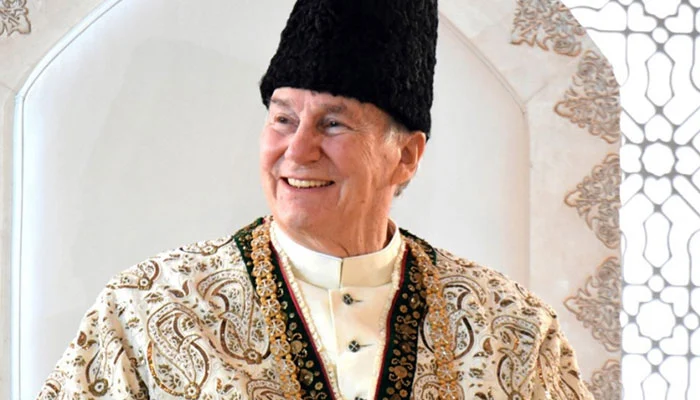Who Was Prince Karim Aga Khan? A Life of Leadership, Philanthropy, and Global Impact
Prince Karim Aga Khan, formally known as His Highness the Aga Khan IV, is a spiritual leader, philanthropist, and global advocate for development, education, and cultural preservation. As the 49th hereditary Imam of the Shia Ismaili Muslims, he has dedicated his life to improving the quality of life for millions of people around the world, regardless of their faith or background. His work spans continents and sectors, making him one of the most influential and respected figures of our time.
In this blog post, we’ll explore the life, legacy, and contributions of Prince Karim Aga Khan, shedding light on his remarkable journey and the profound impact he has had on the world.
Early Life and Ascension to Leadership
Prince Karim Aga Khan was born on December 13, 1936, in Geneva, Switzerland, to Prince Aly Khan and Princess Tajuddawlah Aly Khan. He is the grandson of Sir Sultan Mahomed Shah Aga Khan III, the 48th Imam of the Ismaili Muslims. Growing up in a family deeply rooted in leadership and service, Prince Karim was educated at some of the world’s most prestigious institutions, including Le Rosey in Switzerland and Harvard University, where he studied Islamic history.
In 1957, at the age of 20, Prince Karim succeeded his grandfather as the Aga Khan IV, becoming the spiritual leader of the Ismaili Muslim community. His grandfather’s will described him as a “young man who has been brought up in the midst of the new age” and expressed confidence in his ability to lead the community in a rapidly changing world.
Spiritual Leadership of the Ismaili Muslim Community
As the Imam of the Ismaili Muslims, Prince Karim Aga Khan holds a unique position of spiritual and moral authority. The Ismaili community, a branch of Shia Islam, is a global, multi-ethnic group with millions of followers in over 25 countries. The Aga Khan’s role is not only to provide religious guidance but also to improve the quality of life for his followers and the broader communities in which they live.
Under his leadership, the Ismaili community has flourished, with a strong emphasis on education, economic development, and social welfare. The Aga Khan has worked tirelessly to promote pluralism, inclusivity, and the values of Islam as a faith that embraces diversity and compassion.
Philanthropy and Development: The Aga Khan Development Network (AKDN)
One of Prince Karim Aga Khan’s most significant contributions to the world is the establishment of the Aga Khan Development Network (AKDN), one of the largest and most comprehensive development organizations in the world. Founded in 1967, the AKDN operates in over 30 countries, focusing on areas such as:
- Education: The Aga Khan has championed education as a cornerstone of development. The Aga Khan University, the University of Central Asia, and numerous schools and educational programs have been established to provide quality education to students across the globe.
- Healthcare: The Aga Khan Health Services operates hospitals, clinics, and medical centers, particularly in underserved regions of Asia and Africa, providing access to affordable and high-quality healthcare.
- Economic Development: Through initiatives like the Aga Khan Fund for Economic Development, the AKDN supports entrepreneurship, microfinance, and infrastructure projects to create sustainable economic opportunities.
- Cultural Preservation: The Aga Khan has been a passionate advocate for preserving and promoting cultural heritage. The Aga Khan Trust for Culture has restored historic sites, such as the Al-Azhar Park in Cairo and the Humayun’s Tomb in Delhi, while also fostering contemporary artistic expression.
- Environmental Sustainability: Recognizing the importance of environmental stewardship, the AKDN has implemented programs to address climate change, promote renewable energy, and ensure sustainable resource management.
Promoting Pluralism and Interfaith Understanding
Prince Karim Aga Khan has been a vocal advocate for pluralism and interfaith dialogue. He believes that diversity is a strength and that understanding between different cultures and religions is essential for global peace and prosperity. In 2006, he established the Global Centre for Pluralism in Ottawa, Canada, to promote research, education, and dialogue on pluralism as a foundation for inclusive societies.
His efforts in this area have earned him widespread recognition, including numerous honorary degrees, awards, and accolades from governments, academic institutions, and international organizations.
Recognition and Legacy
Prince Karim Aga Khan’s contributions have been recognized globally. He has received numerous awards, including the Architectural Digest Award for Excellence in Design, the Tolerance Award from the Evangelical Academy of Tutzing, and the United Nations Gold Medal for Philanthropy. In 2009, he was made an honorary citizen of Canada in recognition of his contributions to the country and the world.
His legacy is one of compassion, innovation, and a deep commitment to improving the human condition. Through his leadership, the Ismaili community has become a model of how faith-based organizations can contribute to global development and social progress.
Personal Life and Interests
Prince Karim Aga Khan is known for his love of horses and equestrian sports. He has owned and bred some of the world’s most successful racehorses, winning prestigious events like the Epsom Derby and the Prix de l’Arc de Triomphe. His passion for horses reflects his appreciation for tradition, excellence, and beauty.
He is also a patron of the arts and culture, with a particular interest in architecture and design. His commitment to cultural preservation is evident in the many restoration projects undertaken by the Aga Khan Trust for Culture.
Conclusion: A Visionary Leader for a Better World
Prince Karim Aga Khan’s life and work embody the principles of service, compassion, and leadership. Through his spiritual guidance, philanthropic initiatives, and advocacy for pluralism, he has touched the lives of millions and left an indelible mark on the world. His vision of a more inclusive, equitable, and harmonious world continues to inspire people of all backgrounds to work together for the common good.
As we reflect on his legacy, we are reminded of the power of leadership rooted in empathy and the profound impact one individual can have on the world. Prince Karim Aga Khan’s story is a testament to the enduring values of faith, hope, and humanity.
Demise:
Prince Karim Al-Hussaini, known as Aga Khan IV, the spiritual leader of the Ismaili Muslim community, passed away on February 4, 2025, in Lisbon at the age of 88. Assuming the role of Imam at just 20 in 1957, he dedicated his life to philanthropy and the betterment of his followers. Through the Aga Khan Development Network, he invested significantly in global initiatives spanning education, healthcare, and environmental sustainability, impacting over 30 countries. Beyond his spiritual and philanthropic endeavors, he was a prominent figure in the equestrian world, with his horse Shergar achieving notable victories in 1981. His passing marks the end of a remarkable era of leadership and compassion.
What are your thoughts on Prince Karim Aga Khan’s contributions? Share your reflections in the comments below!





Prince Karim Aga Khan truly exemplifies leadership and dedication through his global initiatives. His commitment to education, cultural preservation, and development has impacted countless lives. It is inspiring to see how he bridges faith and service to foster inclusivity and progress. His vision for a better world is a testament to his profound influence. How does his work inspire you to contribute to your own community?
Prince Karim Aga Khan has truly made a profound impact on the world through his leadership and dedication to humanitarian causes. His efforts to promote education and cultural preservation have benefited countless individuals across diverse communities. It is inspiring to see how he has upheld the values of pluralism and inclusivity in his work. His ability to bridge cultures and faiths is a testament to his vision of a more harmonious world. How does his leadership continue to shape the future of the Ismaili community and beyond?
l341xa
8cl7vl